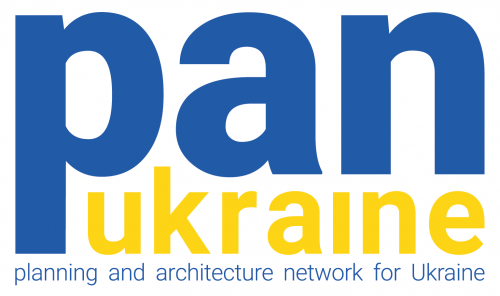
DIGITAL LEARNING PLATFORM – ReConstructionModules and Integrated Urban Development
As part of the funding program “Ukraine digital: Ensuring study success in times of crisis (2022)”, sponsored by the Federal Ministry of Education and Research and the German Academic Exchange Service, we are working to develop study modules on reconstruction and integrated urban development for Ukrainian students and researchers.
To access the modules, please register at futurelearnlab.de. You can then enroll in the various courses using the links below. If you face any troubles, please do not hesitate to contact info@panforukraine.de.
AVAILABLE MODULES
In this course you find the recordings of the two lecture series
- Challenges and perspectives for resilient post-war cities in Ukraine (ongoing, see detailed program)
- Integrated urban development strategies (October to December 2022, see detailed program)
Both lecture series discuss relevant topics for Ukraine in the context of integrated urban development and EU’s New Leipzig Charter. The speakers, experts from academia and practice, are familiar with the Ukrainian context and contribute with their international experience to start a constructive dialogue on the major challenges in Ukrainian cities and regions.
Link to the course: https://futurelearnlab.de
A exchange and networking platform for our Ukrainian scholarship students and researchers.
The studio “Resilient urban quarters – strategies for the development of a medium-sized city to overcome housing shortage” was held with Ukrainian students in winter semester 22/23. The city of Drohobych in western Ukraine, which faces housing shortages due to the large number of refugees from war zones, was selected for the project. After a detailed analysis of the city as a whole, a site was selected for the development of an innovative and sustainable urban neighborhood, for which the students developed alternative scenarios and an urban plan. Important initial findings for resilient urban design are: autonomous energy supply, protective structures to protect the population and critical infrastructure, mixed use in the sense of the productive city, decentralized, redundant structures and circular economy principles (see results).
In this seminar, held in winter semester 22/23, students dealt with the topic of reconstruction after disasters, especially the “Build Back Better” approach. This approach aims to not only rebuild disaster-affected areas and communities through a holistic reconstruction strategy, but to increase their future resilience through medium- and long-term measures.
But what exactly does “better” mean? What are the specific goals of reconstruction and how can they be achieved? What criteria can be used to evaluate reconstruction at all? Using the “Build Back Better” principles, students analyzed concrete case studies and identified key success or failure factors. The aim of the seminar was to discuss and evaluate the transferability of the individual findings, especially with regard to current needs in Ukraine.
Cities are always a place where conflicts take place. Conflicts between different usage claims or social groups, conflicts about apartments or jobs, conflicts about influence and power. In Germany, conflicts are often contained due to strong planning laws and rigid rent regulation. In view of the ongoing housing shortage and rent increases, however, there are increasing conflicts about housing policy, including public protests and squatting.
The extreme form of conflict resolution is war, with destruction of the building fabric and displacement of the population. In the post-war period, the urgent task arises of rebuilding destroyed buildings and erecting new ones very quickly. Ambitious housing programs were pursued in Germany after 1945. But natural disasters like the one in the Ahr valley also make it necessary to think about innovative reconstruction strategies.
The reconstruction and creation of affordable housing takes on a new urgency considering Russia’s war of aggression against Ukraine. Millions of people from Ukraine, mostly mothers with children, have fled to Europe for whom shelter is to be provided. At the same time, there are millions of internally displaced persons who are affected by severe housing shortages within Ukraine. When the refugees return to Ukraine, the housing shortage will worsen if no adequate measures are taken to create affordable housing.
In view of this initial situation, the seminar dealt with different strategies and case studies on reconstruction and affordable housing under the main topic “Cities in Conflict”. Which established strategies can be optimized and how can innovative and short-term measures cover the acute need for housing – for Germany, but also as transfer points for the war-torn Ukraine?